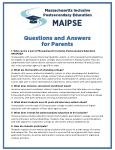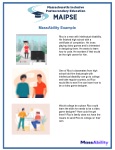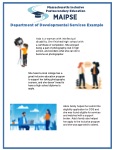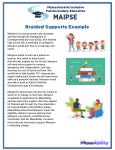MAIPSE for Parents and Students
A video with more information about what it looks like to go to college.
Adults with intellectual disability, severe developmental disabilities, and autism ages 18 and up can go two college. There are two pathways: if a young adult is still in the K-12 system the school district can partner with institutions of higher education to provide college-based transition services, or if the adult is served by an adult agency (DDS or MRC) they can go through their agency.
Planning for college is a collaborative process, and you and your service team should have a clear plan for what benefits your daughter or son will get from attending. You can plan for skills you'd like them to acquire, including social and organizational skills, job-specific knowledge, exploring leisure and recreation activities, and practicing self-advocacy and determination.
When in college, students benefit for three types of supports: the program coordinator, education coach, and peer mentor. Following is an overview of each of their roles:
Students also receive travel training to and from campus, delivered by either the district or adult service agency. While in class, students benefit from accommodations that they will request from their instructor. The coordinator and education coach will support them in communicating effectively with Disability Services/Student Support and their instructor.
A video with more information about what it looks like to go to college.



